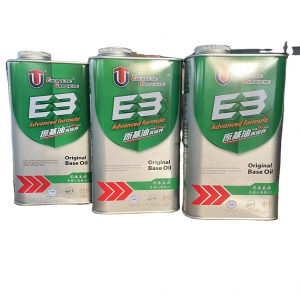The automotive industry is witnessing breakthrough developments with the launch of revolutionary nanotechnology graphene engine oil. This innovative trend has received widespread attention and adoption for its potential to transform engine performance, reduce friction, lower emissions and improve fuel economy, making it a game-changer for automakers, enthusiasts and environmental advocates.
One of the key advancements in the industry is the integration of nanotechnology graphene, a cutting-edge material known for its exceptional strength, lubrication properties and thermal conductivity, into engine oils. This breakthrough technology provides superior lubrication, reducing friction between engine components, thereby increasing engine efficiency and life. Additionally, the use of nanotechnology graphene in engine oils has been shown to improve thermal management, thereby reducing heat generation and improving engine performance.
In addition, concerns about environmental sustainability and fuel efficiency have driven the development of nanotechnology graphene engine oils that meet the specific needs of vehicle owners and environmental advocates. Manufacturers are increasingly ensuring that such innovative engine oil formulations help lower emissions, improve fuel economy and reduce environmental impact, in line with global efforts to promote cleaner, more efficient vehicle technologies.
Additionally, the customizability and adaptability of nanotechnology graphene engine oil make it a popular choice for a variety of automotive applications and environmental conditions. Designed to meet the needs of a wide range of vehicles, from passenger cars to commercial trucks, this revolutionary product has the potential to improve performance, reduce maintenance costs and contribute to a greener, more sustainable automotive industry.
As the industry continues to witness advancements in automotive lubrication technology, the future of nanotechnology graphene engine oils appears promising, with the potential to revolutionize engine performance, reduce emissions, improve fuel economy, and set new standards for automotive lubrication and environmental sustainability .

Post time: Jun-15-2024









